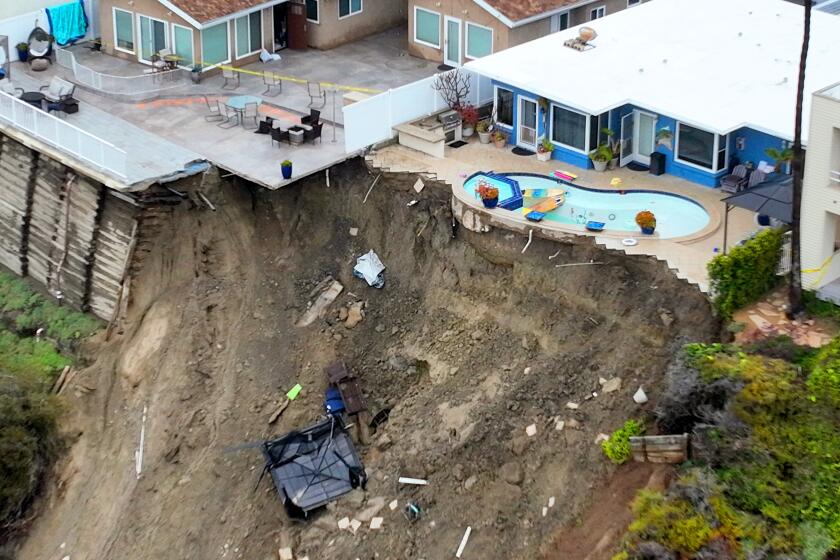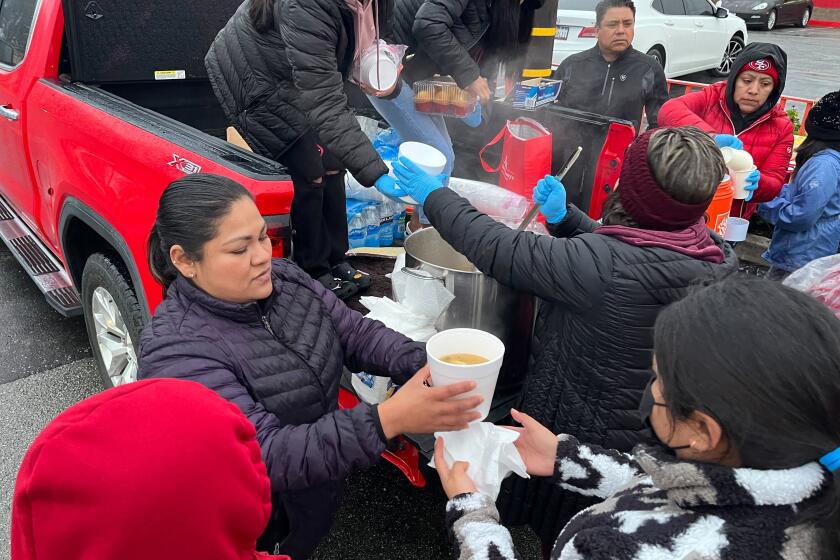After homes flood in Tulare County, decision to pave over creek for new houses draws blame
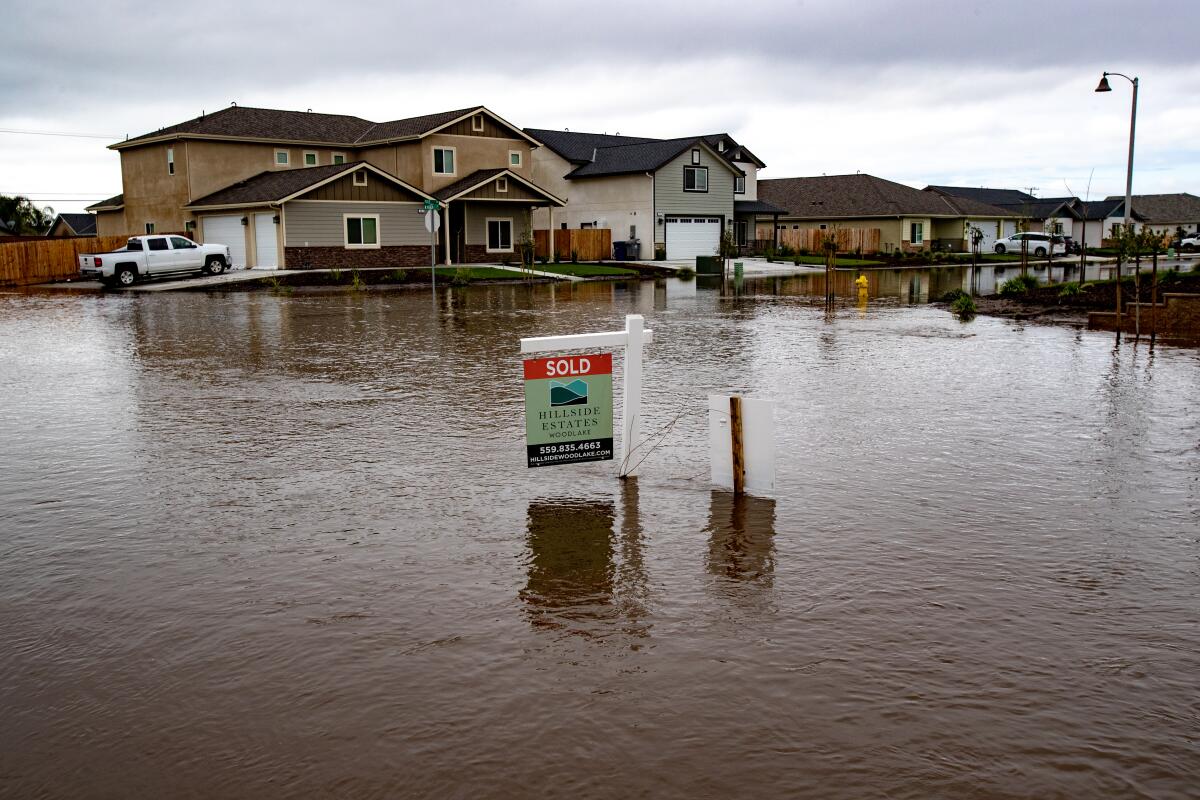
- Share via
WOODLAKE, Calif. — After the rain stopped Wednesday afternoon, the prevailing sounds in northwest Woodlake were those of rushing water and gas generators.
On the town’s edge in Tulare County, northeast of Visalia, dozens of houses had flooded repeatedly since early Friday as more storms slammed California.
A new development was cut off from existing homes by a river of brown water a foot deep and 10 feet wide, coursing around signs reading “Sold” and “Ready to Move In!” before hitting a main street and being channeled to a natural creek bed.
Keylan Liles, who has lived in a house on West Cajon Avenue for decades, said he’d “never seen anything like this.”
“Then they built that,” he said, pointing to the new development across the street, which he said replaced orchards and Antelope Creek with ribbons of asphalt.
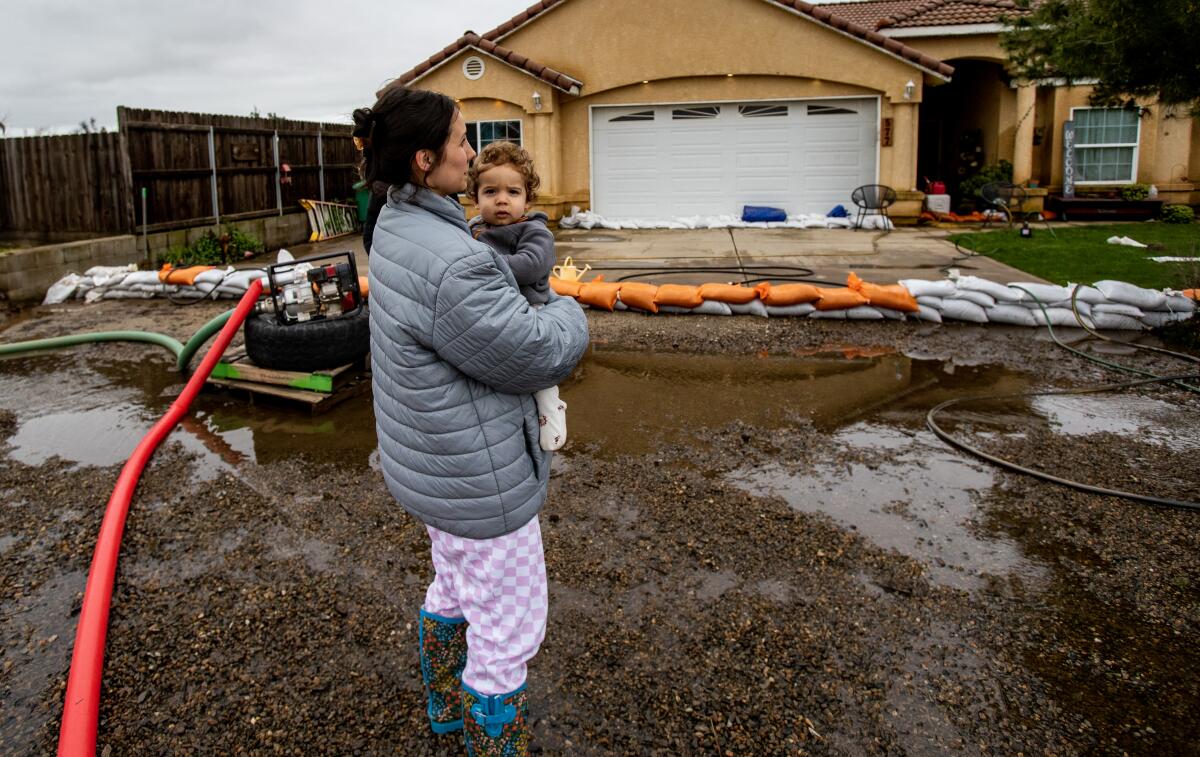
His wife, Madisyn Liles, stood outside their home holding 1-year-old son Luka. Their house first flooded Friday, but an evacuation warning didn’t come until Wednesday morning, they said, days after they had devised a pump system to get water out of their home.
Now the house was mostly dry, but like almost every other in the neighborhood, its exterior walls showed water marks several feet high.
California continues to deal with damage from March storms: surging rivers, mudslides, breached levees and displacement in flooded towns.
“Our house would’ve flooded much worse if not for the pumps,” Madisyn said.
The Lileses were still staying at home, where sandbags had kept water out of the main living areas. They are comparatively lucky.
A block away and slightly downhill, the Zaragoza family home had those ubiquitous water marks and sandbags. Unlike the Lileses, the Zaragozas left Friday to stay with a relative in a drier part of the town.
When they were leaving, 3 feet of water had flooded their home. After their neighborhood had mostly dried out, heavy rains Tuesday flooded it again.
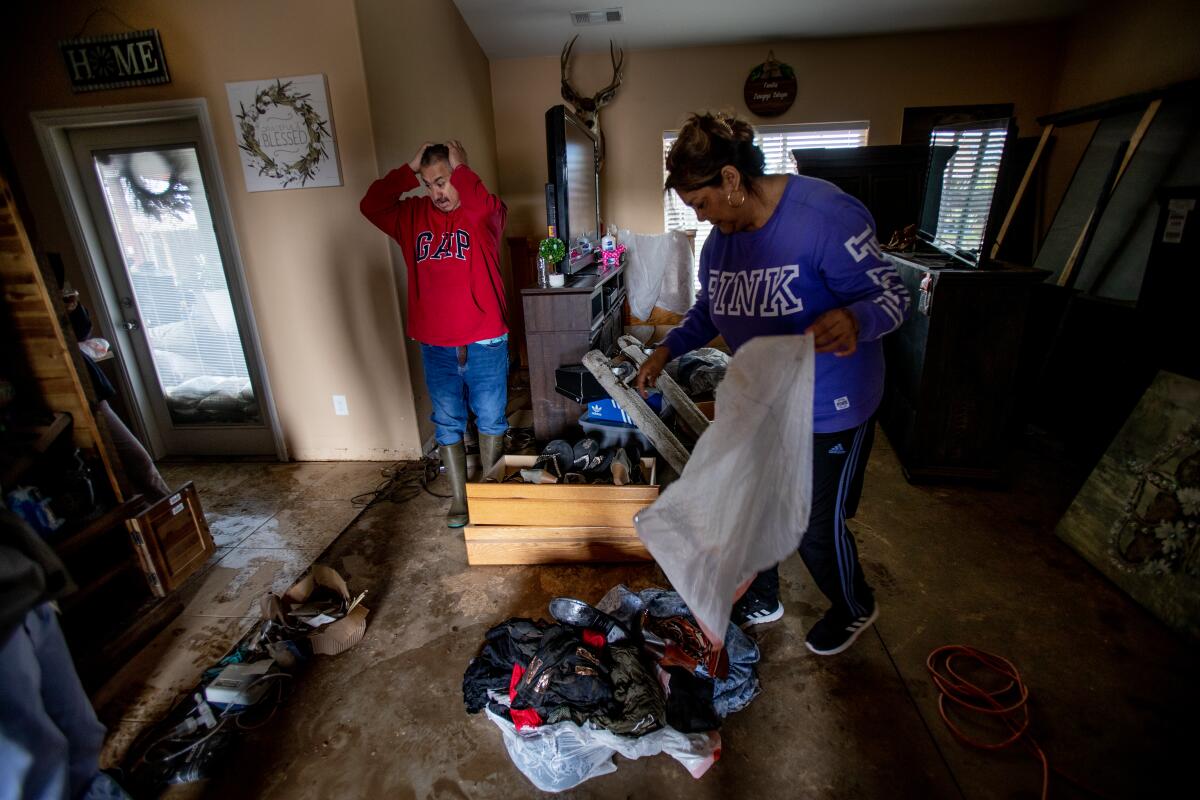
“Everything is going to the trash,” Irineo Zaragoza, 51, said in Spanish as he hauled bags of the family’s possessions to the curb.
Zaragoza, a beekeeper, said he couldn’t work because he needed to get everything out of his house as quickly as possible to prevent further damage.
Inside his house, mud covered the floors. The air smelled foul.
“It was beautiful before,” Zaragoza’s wife, Veronica, said of their home of five years, “and now it’s ugly.”
The family is unhappy with the response from local officials: “No hotel, no food, nothing,” Irineo Zaragoza said. “We were abandoned by the city.”
The town has power and gas but no potable water. Gov. Gavin Newsom said farmworkers affected by the floods would receive checks of $600, regardless of immigration status.
Their next-door neighbor Joshua Matthew Diaz, 34, said the water was up to his knees on Friday.
“Most of our home was a complete loss,” he said.
Like many in the neighborhood, he questioned whether the new development contributed to the flooding.
It “was made on top of the creek,” he said. He has written to the city to ask how the homes were approved and what their environmental impact statement said.
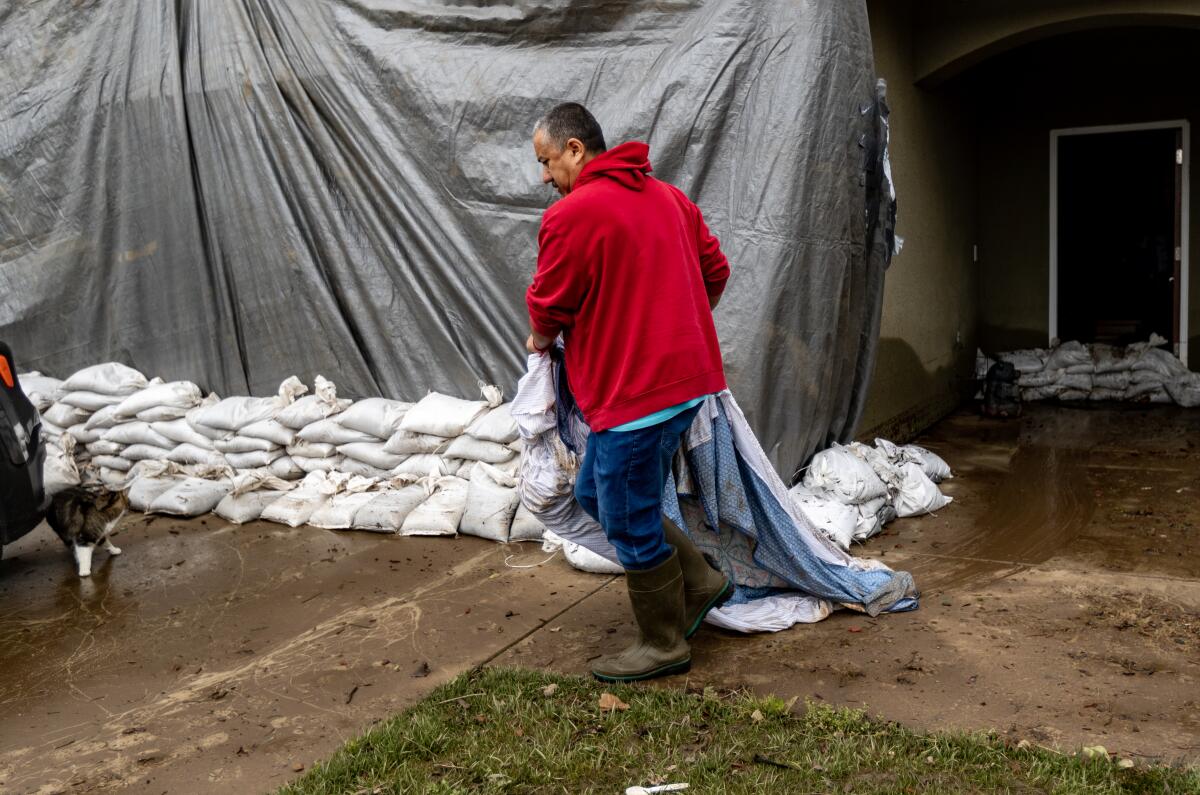
The land “was a basin” before being developed, Diaz said, with orchards and a creek.
Yanez Homes, developer of the Hillside Estates, said in a statement to The Times that the wave of storms that hit the state was “unprecedented” and that the development had been “built in compliance with all applicable municipal requirements relating to drainage and other building requirements.”
Like the Zaragozas, Diaz did not have flood insurance. When he called, the company offered him a policy beginning in 30 days. He sighed. “I need some relief now.”
Diaz, a teacher in nearby Porterville, said he received a letter from the fire department saying that the floodwater was “hazardous and contaminated,” and that any furniture it touched should be thoroughly cleaned or disposed of.
“The cost is going to be tremendous trying to bring back these houses,” he said.
Daniel Salgado, a project manager for 911 Restoration, was busy with a crew clearing out a house around the corner. Wednesday was the first day roads were clear enough for outside crews to get in and work on the houses.
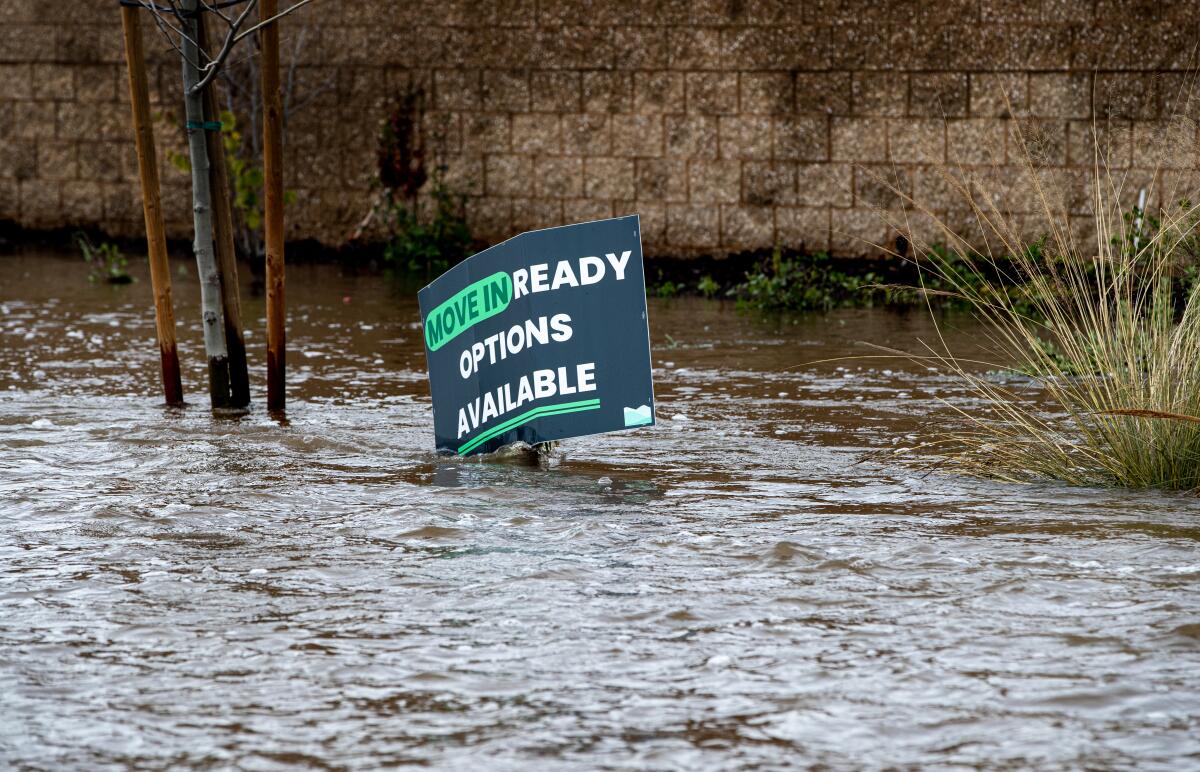
The houses in this neighborhood are in the “black water category,” he said. “Everything must go.”
Contaminants in the water included feces and pesticides, Salgado said. His crew will spend several days on the house, he said, and help the owners “prepare for what’s to come” by relocating valuables as more storms approach.
On Wednesday afternoon under blue skies, Diaz helped his neighbors remove items from their home so they could be picked up by the Department of Public Works and thrown away.
The Zaragozas carried out mattresses, bags of clothes, medical devices.
“We have no clothes,” Irineo said. “We don’t know what to do.”
More to Read
Sign up for Essential California
The most important California stories and recommendations in your inbox every morning.
You may occasionally receive promotional content from the Los Angeles Times.

